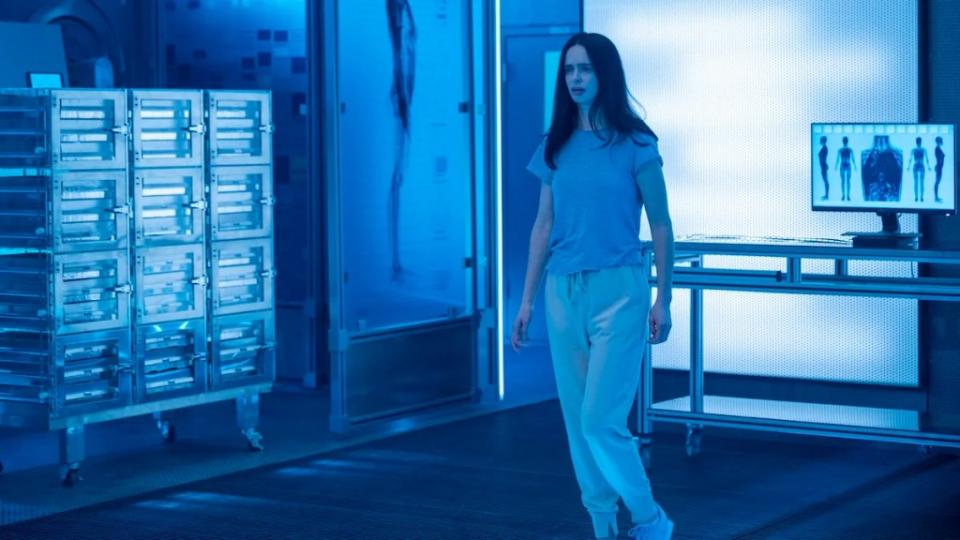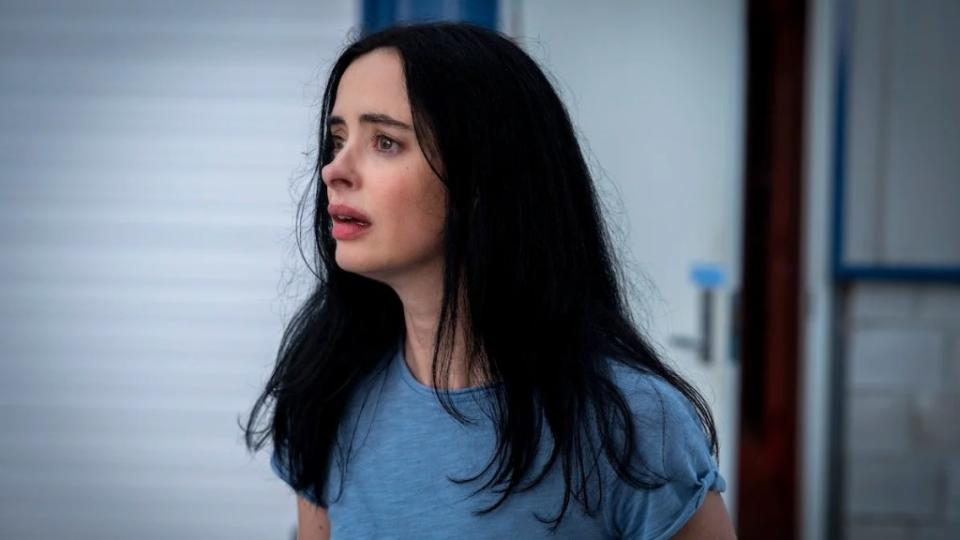‘Orphan Black: Echoes’ Review: Spin-Off Recaptures a Feeling, but Not the Full Maslany Magic
“Orphan Black: Echoes” is not an exact replica of “Orphan Black,” the beloved, groundbreaking sci-fi series that aired from 2013-17 on BBC America.
The Tatiana Maslany-less spin-off, premiering Sunday, June 23, is more like a photocopy of a printout of a screen grab. But it is well-acted, often heartfelt and hits enough of the original show’s beats to tide us over until the Emmy-winning actress can be drawn back into the fold.
The success of “Orphan Black” rested almost entirely on Maslany’s extraordinary ability to inhabit the various clone characters she played. The main clones were so distinct in manner and personality that the show often gave the impression that several different actors were playing them.
Maslany’s high-wire act could never be repeated. Nobody even tries in “Orphan Black: Echoes,” where protagonist Lucy (Krysten Ritter) is not a clone, but rather a 4D printout. So … totally different.
We could harp on the lack of originality, but the “Orphan Black: Echoes” trailer beat us to it, calling the new series a “completely unique copy of the original.” It’s a joke, but also a promise in acknowledging familiarity as the main appeal of all spin-offs and sequels.
“Echoes” delivers on this front, returning “Orphan Black” fans to a world and a sensibility we have missed, but in the near future (2052, to be exact). Without spoiling specifics, favorites from the first series pop up in the new one. Moreover, creator and showrunner Anna Fishko (“Fear the Walking Dead”) and “Orphan Black” co-creator John Fawcett, who directs three episodes here, stoke the same high level of anticipation, followed by genuinely surprising twists that we grew to expect from the original show.

“Echoes” explores similar questions about identity, family and bioethics, and also contains a LGBTQ+ storyline almost sure to delight fans of the mothership’s Cosima-Delphine pairing. Squint a little, and the goth-adjacent Lucy could even be a sestra of Maslany’s defiant, punkish “OB” protagonist Sarah Manning.
In an echo of the original series’ pilot, Lucy awakens on a sofa in a room meant to be familiar, to the soft, hopeful voice of a scientist (Keeley Hawes) eager to see what she remembers. Lucy recalls little of her life before this moment, but shows enough smarts to escape the space she is locked in and discover the lab where life-saving organs for transplants, and apparently whole humans, are printed.
She makes her way to a trailer in the country near her military veteran boyfriend (a likable Avan Jogia), who can also MacGyver his way out of jams, and his bright, curious daughter, Charlie (Zariella Langford-Haughton), with whom Lucy has learned to communicate via ASL. Unaware of her past beyond disturbing flashbacks to a bloody bathroom and a knife, Lucy seems settled in the sticks before a bad guy’s surprise appearance sends the trio on the run to the city.
Lucy has ties at a sober house run by a world-weary but welcoming hippie (a sly Jonathan Whittaker) who is always willing to help Lucy, after a year of using substances to try to forget her non-past. Lucy in turn will try to help others, her natural (or lab-grown) empathy tempering her rebellious streak.
Often looking a little lost but like she does not want to be, Ritter draws our sympathy as Lucy tries to solve her own predicament and that of Jules (Amanda Fix), a teenager she encounters in the city who looks like Lucy and has the same scar on her arm. Lucy barges into Jules’ life, seeking answers for both of them. She eventually grows as fond of Jules as of Charlie. Lucy’s creator obviously hit the “big heart” button back at the Xerox machine, as well as the “big brain” one.
Along with facial features and a fondness for lug soles and sassing people, Jules shares Lucy’s desire to assist people she barely knows. Ritter and Fix emanate goodness — but so does Hawes, which can be confusing since her character’s motivations are murky. Still, this collection of kind eyes produces a sustained feeling of comfort rarely experienced in the original series, where well-founded fear and anxiety often ruled.

Danger certainly lurks in “Echoes,” however, often in the form of billionaire so-called environmental champion Paul Darros (a quietly menacing James Hiroyuki Liao), an Elon Musk-Goop mashup who speaks in the affected low tones of rich people who consider themselves too evolved to ever raise their voices.
He’s not the only wealthy character, but you would not know it from the 2023 Volvos and Teslas still apparently being driven in the 2050s. One gets the sense, from this aspect and from how blue light and nearly empty warehouses are doing the production design’s heavy lifting, that hiring a whole cast instead of relying on a single actor might have strained the budget.
Worse are attempts to establish the city setting as a future Boston by inserting what look like images of Dubai skyscrapers among old brick buildings in long shots. We wonder why they bothered, when “Orphan Black: Echoes,” much like its predecessor set in an unnamed city, is so clearly Canadian. Hearing the odd “aboot” is all part of the experience.
“Orphan Black: Echoes” premieres Sunday, June 23 at 10 p.m. EST on BBC America and AMC.
The post ‘Orphan Black: Echoes’ Review: Spin-Off Recaptures a Feeling, but Not the Full Maslany Magic appeared first on TheWrap.

 Yahoo News
Yahoo News 
